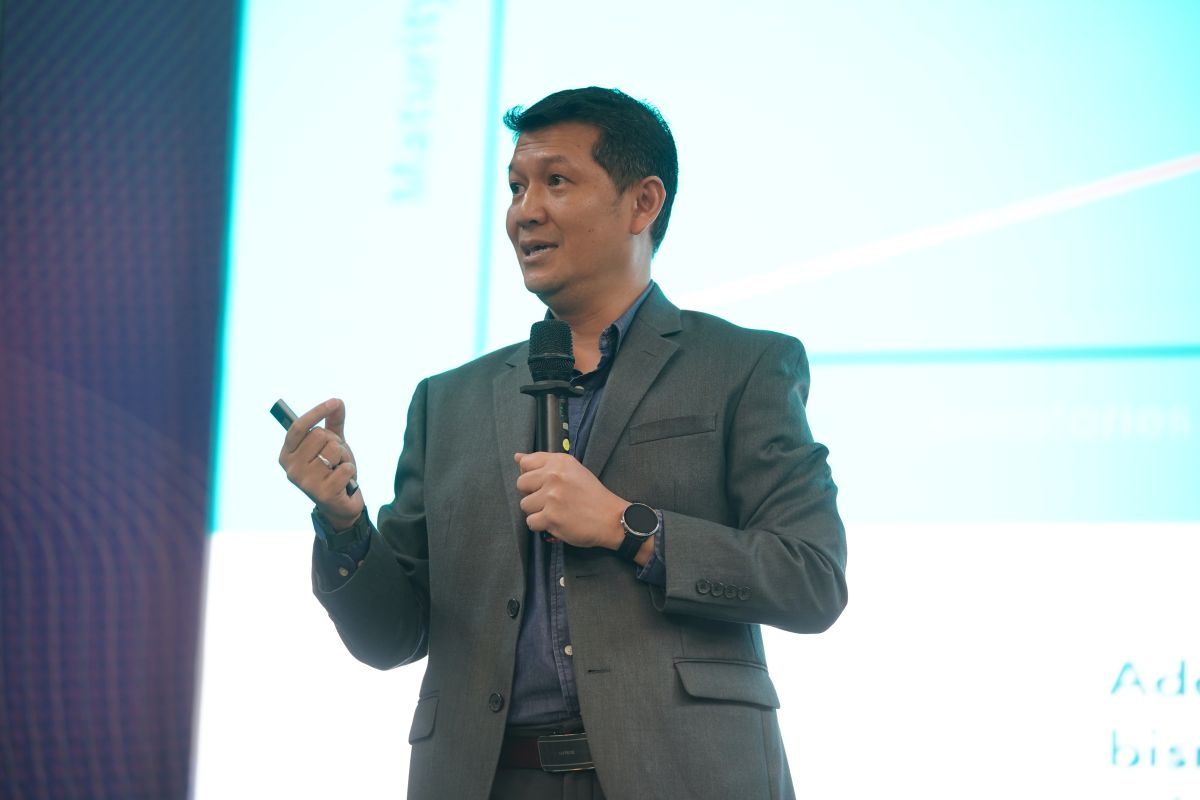SmartEdu, an Integrated Exam System for Smarter Learning Method
By Adi Permana
Editor Adi Permana

BANDUNG, itb.ac.id – To accommodate a more efficient and effective teaching & learning method, Bandung Institute of Technology (ITB) launched SmartEdu. The collaboration of ITB, PT. INTI, and the Ministry of Research, Technology, & Higher Education results in an integrated computer-based exam system.
SmartEdu was developed by Ir Adi Indrayanto MSc, PhD., and Yusep Rosmansyah ST, MSc, Ph.D., along with several lecturers and researchers from the School of Electrical & Informatics Engineering (STEI) ITB and Center for Microelectronics (PME) ITB. The hardware of SmartEdu was developed by Adi Indrayanto, while the software development was by Yusep Rosmansyah.
When being interviewed by the ITB Public Relation’s reporter, Adi Indrayanto explained that in the earlier, SmartEdu was made to accommodate lecturers to determine which material that would be delivered. “Hence the lecturer could conduct pre-test prior to the material presentation. The test will show the score and the right/wrong dispersion for every question. Then, the lecturer could know which part of the material that needed to be explained more, therefore would result in a more efficient learning method,” he said.
From his perspective, SmartEdu is a smart system due to its simplistic, concise, and mobile system, compared to the existing computer-based exam system. There are three main components of SmartEdu.
First, is the device. The device is a smartphone that was developed by Adi Indrayanto since 2016. This smartphone is made as to the substitute of the conventional computer. The applications that are included in the smartphone are using a self-made operating system.
Second, is the portable docking. Portable docking is a case both for charging, as well as a smartphone's storage. The case fits ten lines of smartphones, where one line contains five smartphones. This component is attached by a sensor that can automatically detect any smartphone with less or no battery, it will then automatically charge and discharge.
“The third component is the access point. The local access point is to prevent any fraud or any unrelated activities,” said the lecturer from ITB Electronics Expertise Group.
Simple Working System
Based on Adi Indrayanto’s explanation, the application is launched with a rather simple presentation. Participants simply need to log in, after entering they are directed to the problem package, then simply select any package to be worked on. In working on the problems, there are several features such as the indication of the answers that are still in doubt by giving a different color, also the workmanship of the problems doesn’t have to be done sequentially.
“Participants merely need to submit their answers and then log out from the application. Their score will instantly display and seen by the lecturer,” he continued. Along the development process, there are several challenges faced by the team. For example, bugs are often encountered when testing the application, so they need to reprogram the application. In addition, the operating system used is an open-source system, so if there are any changes in the operating system, it needs to be reinstalled (injection). Smartphones that are too often experiencing operating system’s injection, could cause some components like storage memory to be easily damaged and then need to be replaced.
“We would like to augment any energy provider for charging. Currently, this innovation needs electricity to charge. In the future, we’d like to develop an integrated system powered by the portable solar cell, therefore this system could be used anywhere, including the remote places in Indonesia that haven’t been electrified,” he said.
Ultimately, Adi Indrayanto hopes that SmartEdu could accommodate every type of computer-based exam. Not only for university purposes, but the system could also be integrated for Civil Servants Candidates Selection (CPNS) and college entry’s exam.
Reporter: Indah Lestari Madelin
Translator: Wendy Anastasia Yoeda


.jpg)

.jpg)
.jpeg)

